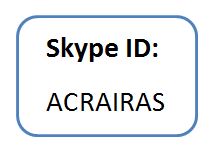Guidelines to Prepare Annual Accounts for Singapore Small Business
Preparation of annual financial accounts is mandatory for all companies in Singapore. The preparation must be done in accordance with the Singapore’s Financial Reporting Standards (SFRS) for all the companies with the financial period starting on or after 1 January 2003. It is both the nominee director and/or the directors job to ensure that the management accounts comply with the FRS. This is all the more so especially if your company requires yearly auditing. The standards are based from the IFRS (International Financial Reporting Standards).
When your Accounts need to be Audited?
Most corporate entity enjoy exemptions from audit professionals provided that they met all of the following criteria:
- No corporation as shareholders
- 12 months gross turnover not exceeding $10 millions
Having no audit mean that you can save on your company working finance since the rates of consulting activity performed by auditors are and can be expensive.
Singapore’s Financial Reporting Standards when Preparing Accounts
The Singapore Financial Reporting Standards (“SFRS”) contain guidelines on the preparation of standard financial accounts in areas such as recognition of revenue, how to present financial statements, accounting for inventories, how to deal with lease and reporting and revaluing of the company’s fixed assets among other guidelines.
The reason why you should prepare your financial accounts using SFRS apart from the legal aspect is to ensure that the financial accounts have been prepared in a standard form. This is so that you can compare your company’s financial statements with other companies, in Singapore and in other countries. It also makes comparison of the financial accounts for different periods possible.
The Financial Accounts to be Prepared
Financial accounts that need to be prepared by a company consist of; the Statement of Financial Position otherwise known as the Balance Sheet, the Statement of Comprehensive Income also known as the Profit and Loss Statement, Cash Flow Statement and the Statement of Changes in Equity.
- The Statement of Financial Position (Balance Sheet).
This is a financial statement showing the financial health of a business. It contains the information on assets, liability and equity for the business.
- Statement of Comprehensive Income (Profit and Loss Statement).
It is a financial statement showing the profitability of the business. It shows what is left of the revenues collected after all the expenses have been deducted.
- Cash Flow Statement
The statement shows all the sources of money in the company (cash inflows) and how that money has been spent (cash outflows).
- Statement of Changes in Equity.
It shows the changes that have taken place on the owners’ equity for an accounting period such as one year.
A company should prepare its financial accounts depending on its business transactions per month; a busy company with many transactions may prepare its accounts monthly or even quarterly. A company with few monthly transactions may prepare its financial accounts once a year. This is in order to give the company administrators a clear picture of its performance in a timely manner.
J Accounting Services would like to remind you to that it is mandatory for all companies to prepare their annual financial accounts. All companies need to be in compliant with the regulatory authorities and file tax returns to IRAS and annual returns to ACRA every year. If you need help on company compliance matters, check out what J Accounting Services have to offer you. Company compliance packages at J Accounting Services are available as well.




